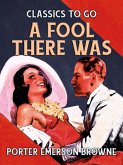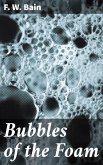In "A Fool There Was," Porter Emerson Browne crafts a poignant exploration of human frailty and the consequences of deception. Written in the early 20th century, the play adopts a naturalistic style that mirrors the emotional turbulence of its characters. The narrative is underscored by themes of seduction, betrayal, and the folly of obsession, reflecting the societal tensions of the time, particularly regarding gender roles and the emerging modernity that challenged traditional values. Browne's deft use of dialogue and dramatic tension not only captivates but also invites the audience to reflect on their own vulnerabilities. Porter Emerson Browne, an influential figure in American theater, was deeply affected by the cultural shifts of his era, particularly the complexities surrounding identity and morality. His experiences as both a playwright and a critic informed his nuanced portrayal of characters who grapple with desire and integrity. Browne's keen insights into the human condition are evident in his writing, drawing on personal and societal influences that resonate throughout the play. "A Fool There Was" is highly recommended for readers and theater enthusiasts alike, as it delves into timeless themes that remain relevant today. Browne's sharp wit and introspective storytelling invite reflection on the nuances of love and foolishness, making it a must-read for anyone interested in the interplay of emotion and ethics in human relationships.
Dieser Download kann aus rechtlichen Gründen nur mit Rechnungsadresse in A, B, BG, CY, CZ, D, DK, EW, E, FIN, F, GR, H, IRL, I, LT, L, LR, M, NL, PL, P, R, S, SLO, SK ausgeliefert werden.









